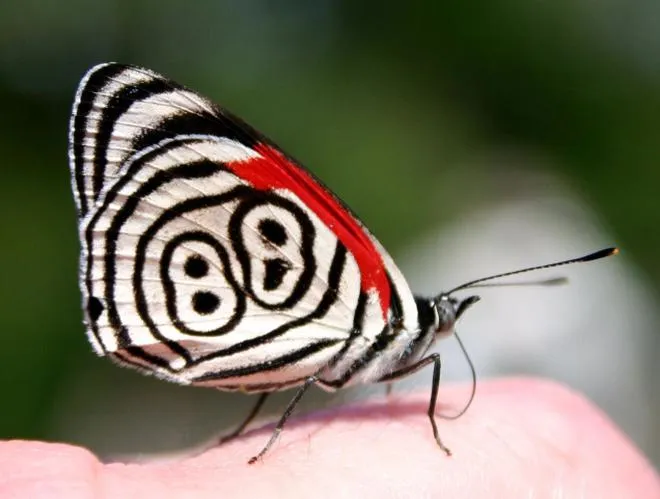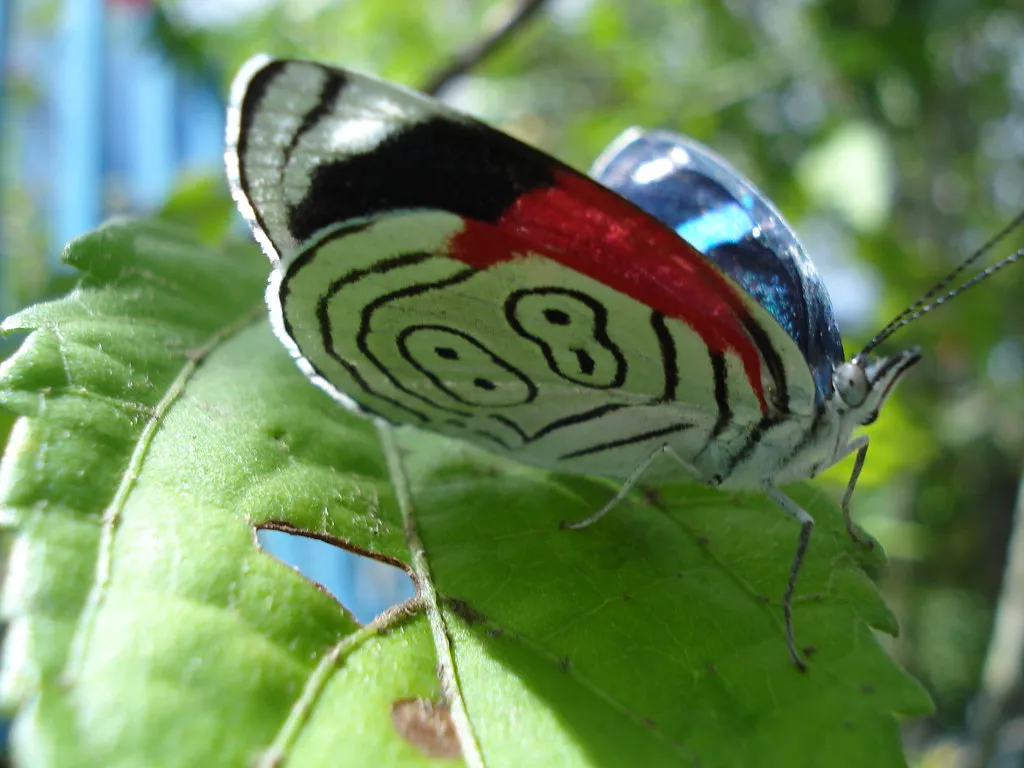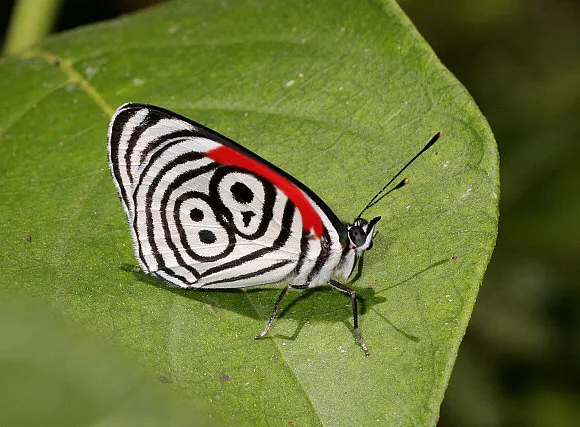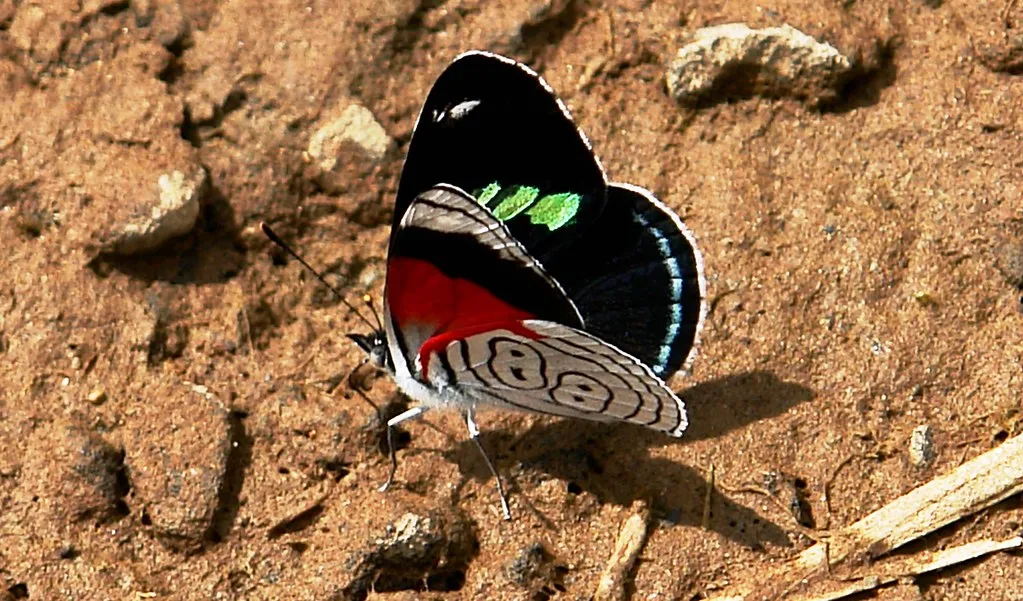Diathria anna

The butterfly family Nymphalidae is one of the most numerous and diverse in Mexico. Its size is very variable, some are small and fragile and others of large size and robust body.
The front legs of the individuals of this family are characterized by being very small and covered with villi, so at first glance it seems that they only have four legs. The larvae can be smooth or with spines and bristles, although most have ornamentations such as horns on the head.

Among the species of the family Nymphalidae we find a butterfly that draws attention due to the curious design of the inner surface of its wings, we refer to the butterfly "88" (Diaethria anna), which is distributed mainly in the states of Veracruz, Puebla , Oaxaca and Chiapas.
Diaethria anna is one of the most beautiful butterflies of Central America, its common name is butterfly 88 for the drawings of its wings. During its megration it flies from Mexico to the North of Bolivia, generally from 800 to 2000 meters. Rarely marks on its wings the number 89.

Characteristics
The Butterfly 88 owes its name to the pattern that its scales mark on the front of its wings, while on the back they are dark colors with strips of color of a luminous or intense metallic hue of blue or green colors, and in some cases can look pale pink depending on the lighting. This genus is completely neotropical and extends from Mexico to the Amazon and is considered by many cultures as a symbol of good luck.
They are dark-colored butterflies, with a yellow-green metallic stripe on the front wings and a blue lower edge on the hind wings. But it is the part below their wings that really catches the attention: the four wings are light in color; in the front wings it has two wide stripes, one red and one black, and in the rear has a design with four concentric circles, which when observed carefully give the appearance of being two eights.

Habitat
This species is found in humid tropical forests at elevations between about 200-1200m. Diaethria is a genus with about 20 species, all Neotropical, whose distribution ranges from southern Texas to the Brazilian Amazon. In the region of Xalapa, Diaethria generally inhabits remnants of mesophilic forest, although we can find it near roads, trails and even roads and in suburban areas.

Lifecycle
The eggs, in common with those of other Diaethria species, are whitish and individually placed on the leaves of the food plant. The caterpillar when well developed is green, with a double row of light spots along the back.
The head is adorned with a pair of very long whorled spines. The larval food plant is Trema (Ulmaceae). The horizontal chrysalis projects, joined by the cremaster of a root. It is green, with white spots on the back.

Behavior
The males are strongly attracted to urine soaked in sand, and also absorb the minerals dissolved in the wet soil, pavements and rock walls. They are very active butterflies, easily disturbed, and rarely settle for more than a few seconds at a time in one place, although they will return several times to the same plot of land. They are usually seen in two or three, but sometimes they congregate in large numbers at the favored points.

Diaethria also has a curious story about her identity. In 1987, at the British Museum of Natural History, Philip De Vries detected a confusion of species, caused by the similarity between them (there are about 20 species all with the design "88" or "98"). Thus, Diaethria astala was confused with Diaethria anna, and even the origin of the specimens was unclear. The true identity of this species is as mysterious as that of a "super agent 88" in London.

Scientific Classification
Scientific name Diaethria anna
Animalia Kingdom
Phylum: Arthropoda
Class: Insecta
Order: Lepidoptera
Family: Nymphalidae
Genre: Diaethria
Species: Diaethria anna
Related sources
http://www.thehindu.com/features/kids/a-look-at-butterflies-from-across-the-world/article8193003.ece
http://www.learnaboutbutterflies.com/Amazon%20-%20Diaethria%20clymena.htm
https://en.wikipedia.org/wiki/Diaethria_anna